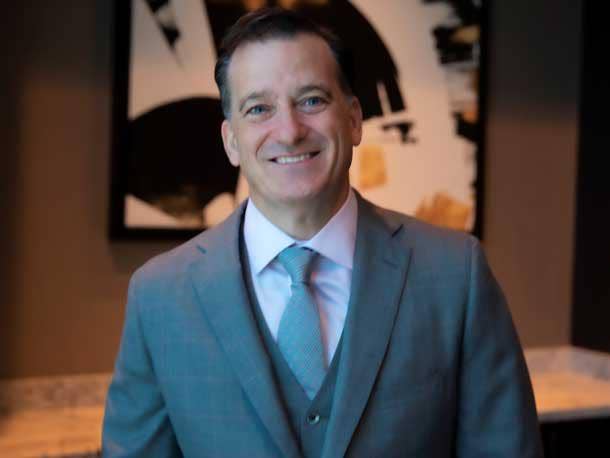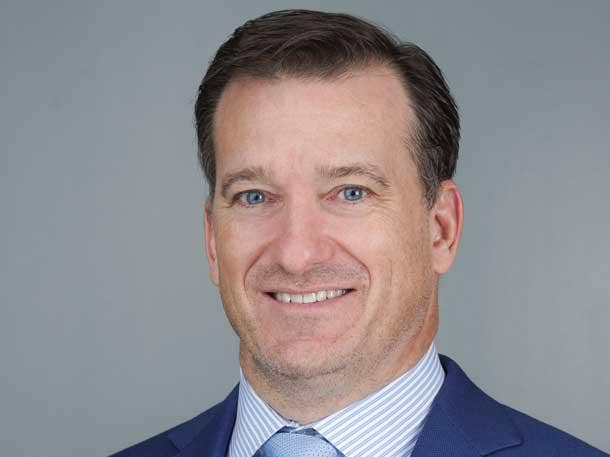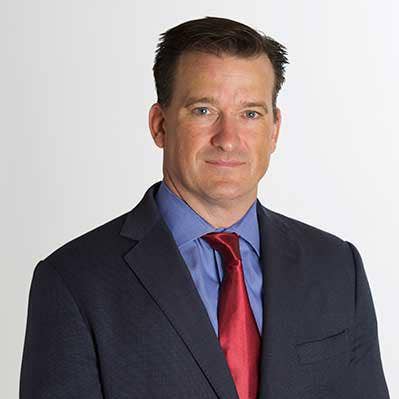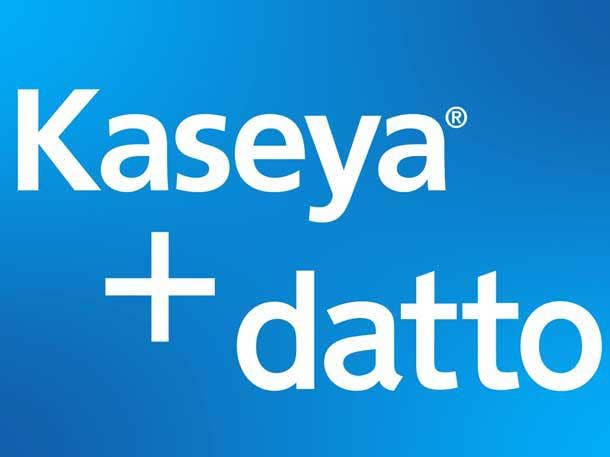Kaseya CEO Fred Voccola On The Raucous Town Hall Meeting That Ruffled Datto Employees’ Feathers
After a town hall meeting left some employees concerned about the future of the Datto culture, Kaseya CEO Fred Voccola spoke with CRN about his leadership style, the way Kaseya’s Datto acquisition came together and his desire for transparency.

[Editor’s note: This article contains coarse language in an effort to maintain the authenticity of the source material.]
Kaseya CEO Fred Voccola relishes his image as a brash executive who speaks his mind, publicly tangling with competitors and commonly using language some companies would consider too profane for the C-suite.
Those tendencies caught some audience members off guard when Voccola earlier this month hosted a town hall meeting to welcome Datto employees into the fold following Kaseya’s acquisition of its former rival.
During the two-hour meeting, a recording of which was shared with 2,400 incoming Datto employees and viewed by CRN, Voccola compared one former Datto leader to a “petulant child,” became irritated by repeated questions about benefits and repeatedly reassured those watching, “I’m not being a dick.”
He also outlined Kaseya’s policy of avoiding public stances about political and social justice issues, a philosophy different from Datto’s.
“Out of everything that people want at the company, the first thing is the culture,” said one Datto employee who now works at Kaseya and requested anonymity for fear of reprisal. “They want it to stay. Kaseya is trying to rip as much of it away as possible.”
Voccola spoke with CRN last week about the town hall meeting and how it was perceived by employees.
This interview has been edited for length and clarity below.

I’d like to start by just asking how you hope to be viewed as a leader?
Voccola: Me personally? … I have no idea. How do I hope to be viewed as a leader? I did not expect that question … I’ve never really thought about it. I mean, as a leader, or as the CEO of the company?
You talk in the town hall session about leadership, and particularly around the Kaseya-Datto transaction, where you said there was somebody at Datto who was a “petulant child,” and they let their ego get in the way. And you said that you're not that kind of person. So what kind of leader do you hope to be viewed as?
Voccola: I like to be viewed as someone who leads an organization, the organization is successful, and people who were associated with the organization think of themselves as better because of it.
I’ll tell you a story. So, I had a company called Identify Software before Kaseya. That was my favorite part of my life professionally. I was young, I had a great mentor. We sold to BMC. We got to a couple hundred, 300, 400 people, whatever it was. I grew up there. I ran the customer side of it. I was like 25 when I started.
That journey was awesome. One of the coolest things about it [was] we changed a lot of people’s lives. If you asked 100 people who worked at Identify Software, 70 percent of them will say ‘Those were some of the best professional years of my life.’ The vast majority of them would say that.
I don’t know if that’s how I view myself as a leader. We all have egos in different ways. One of the things that drives my ego is when people who are associated with [organizations] that I’m a part of or I leave, they’re like, ‘I’m better than before. It was a great experience. It’s positive.’
That means different things to different people. Some people like money. Some people like the sense of community. I still have lifelong friends that I met while at Identify. That’s badass cool right? I don’t know if its helpful or not. You stumped me on that one.

It struck me after the town hall that ...
Voccola: Can I talk about the beginning part [of your question], is that cool? The way that this deal went down, here’s what I was alluding to. I will allude to it more directly. There were approximately 2,400 employees of Datto. Ninety-nine percent of them have no idea about what’s going on. They just don’t. It’s not because anybody is a scumbag, they just don’t know. That creates a shitty quality of life.
Everything in the world is not about money, but the less money someone makes, the more at risk financially they tend to be with a disruption in their life. If someone makes a million a year and they’re out of work for three weeks, they’re going to be ok. If someone makes $50,000 a year and they’re out of work for three weeks, they might be living paycheck to paycheck. That’s tough. It doesn’t make them good or bad. I’m not being a dick by saying that.
The vast majority of employees at any company are not making a million dollars a year, so they fit into the situation that when you are talking about their job, it’s their livelihood more than their career. When you talk about someone’s livelihood, there are real concerns. You’ve got a new baby at home. You want to get married. You’re taking care of your mom, whatever the hell it is, there’s real concern.
Because of the lack of communication that was done to the Datto employee base during the time between the deal being signed and the deal closing—in my view, maybe it’s my opinion, I think, and there’s an argument to be made about everything, armchair quarterbacking is easy—if it was me, I would have done it incredibly differently. I would follow the letter of the law, of course, because I’m not going to friggin’ go to jail, but I would have done it in a much more frequent, more collaborative way with the people who are coming in to buy the company, so the people could have heard the strategy of “why,” what the plans are moving forward, as much as you can legally disclose at the different milestones along that three month process, so you might ease fear, doubt, and uncertainty 10 or 15 percent.
So that wasn’t done. I have an issue with that. It really eff-ing pisses—I’m trying not to curse—it pisses me off because its not cool. I don’t like to do business like that because you just make someone’s life less good.
I don’t work because I want to be the richest man in the world. It’s cool disrupting industries and building solutions that make change. It’s cool impacting literally thousands of people’s lives, financially, career-wise, that’s what I can do. I’m not a doctor. I don’t go out and deliver babies and cure cancer. I run a for-profit company. And I take a lot of pride. My ego is impacting a lot of people’s lives, employees and customers. This isn’t some rehearsed bullshit fucking answer. That’s the reason I work 80 hours a week. Its why I do what I do.
So I don’t know that, for a leader, that’s the best answer I can give. I am clearly never going to write a leadership book because I don’t articulate shit well.

‘I’m not being a dick’ is a phrase that you say a lot in that presentation. Thinking about leadership …
Voccola: Here’s why I do it. Because I’m very direct. And a lot of people aren’t used to that. Also I have a little bit of a hearing problem. So I speak loudly. One of the things I learn and I’m learning—you know we all get better in our journeys—sometimes people don’t always understand your body language. I talk with my hands a lot, some people don’t like that.
When you say this, and you say it a lot, you aren’t giving people a choice. You’re not saying ‘I’m not trying to be a dick’ you say ‘I’m not being a dick.’ You are telling them as though they don’t have a choice in the matter. The reason I bring that up is the question that one of the employees asked about benefits, and on rewatch, they didn’t get to ask the question. You interrupted him and you said look, ‘I’m going to make this simple for everyone: Do you think Kaseya got big enough to acquire Datto by treating its employees like shit?’ I just wonder, if you were in the audience, as one of the lower income employees you mentioned earlier, whose lives are going to disrupted, if you can put yourself in that person’s shoes, how would you feel hearing that as the answer about benefits?
Voccola: I don’t know if it’s a detailed question or a non-detailed question. I’m thinking about the answer. I don’t know how I’d feel because I’m not that person. Listen, self-awareness. We all fuck up all day long. Maybe I should have handled it differently. Listen, your feedback is good. I’ll tell you this during a town hall … (pause) You know what, I’m the CEO of the company. I fucking own it. You’re right. That’s good feedback. I’m not trying to be a dick when I answer it that way. Good feedback.

So given that, when somebody is asking about what the benefits will be in five months, they've got kids and a family and a wife and dogs just like you, and they have zero information at that time about what the benefits are going to be, and instead of being told anything, they're told, ‘Do you think we got this big treating employees like shit?’
Voccola: I think that I would assume and I would hope that the message comes across, I don’t know what our benefits are going to be in January. No one does. And I’m not saying that to be naive. I’m the CEO. Right? So I should know, everything, if you will, but no one knows. Because we haven’t signed the deals.
I was getting asked a lot of very tactical questions about the future, which there were no answers to, like, you know, what is PTO going be like, next year? I don’t know. I don’t know. The company has not figured out what health insurance is going to be like, I don’t know. It should be better. I don’t know. So in answering the question, what I was trying to do, and I think it’s reasonable to assume that I hope this got through, was [indicate that] incentive alignment is everything in the world. No, not everything. It’s a big driver. Hopefully, decisions that get made are mutually beneficial, as much as can be done. I don’t have the specific details as to the question that was asked. … I’m the CEO of a company, I was expecting a lot of business questions. And some of them got very unique and specific, which is fine. Instead of ducking the question, and being like, ‘I don’t know, talk to your HR leaders,’ [I was] trying to at least give as much as I could, and trying to say our incentives are such that we’re not getting to where we are by treating you and people like you like crap, right? That was the intention. You know, [if I] put myself in that person’s shoes, if it was me on the other end of it, I would understand it. But that’s me. Yeah. That was the intention.
Given all of the acquisitions Kaseya has been through, why wasn't your team more prepared to answer those questions? I mean, you had to anticipate that folks are going to be asking about paid time off?
Voccola: Listen, I’m not trying to be a dick. And I don’t want this to come across as being condescending, please. Alright, just one of my weaknesses is I like to be liked. It’s one of my fucking weaknesses. It is what it is I, you know. You have to make tough decisions, but I also like to be liked. … So that’s part of the reason why I also say things like, ‘I don‘t want to be an asshole. Don’t hate me. But here’s the reality.’
So when you ask the question, ‘Should the team have been more prepared on benefits,’ these are the kinds of things that should have been talked about for months prior to the deal getting done by the team that was Datto management. And those are things that are legally allowed to be discussed in the purchase agreement. We’re not legally allowed to change any benefits for this year.

I think everybody was clear that their current benefits would hold for the remainder of the year. The question at the town hall in Norwalk that I heard was focused on January. It was focused on end of the year, what's going to happen at the end of the year?
Vocolla: The point is, as a CEO-driven town hall, being asked tactical questions about benefits. I mean, probably what I should have done was say, “After this meeting, we’ll have our HR team answer any questions you want.” I just choose not to lead like that. Honestly. Maybe that’s a bad thing. I don’t know if it’s good or bad. But I would rather just do what works.
Why did you tell the audience about Kaseya’s lawyer, Gordon Caplan, being involved in the “varsity blues” college admission scandal?
Because people were going to Google all this stuff. They’re going to see it.
Is this something that people would have sought out and looked up? I was very curious about why you chose to mention that.
Vocolla: Yeah, just part of the information, part of the story. A lot of people had asked about it. A lot of people inside of Kasaya who were here then remember that situation. So I got all the stuff, just get the information out there.
Caplan’s arrest led to an audit by TPG that, you said, found Kaseya was No. 1 across several categories related to diversity, equity and inclusion (DEI). Is that report available for employees?
Vocolla: We don’t publicly make that stuff available, but if employees want to look at it, we can absolutely go through the information.
I wasn't clear when you said that the audit found that Kaseya was the most diverse company, what was the framework under which it was found to be the most diverse company?
Vocolla: I’ve got to be honest, I don’t have the specific pieces, but it was various measures. I mean, if you look at our exec team, even right now, I mean, you know, and it’s, again, it’s not due to intention, right? That’s just the way we can find the best people wherever they are.

The folks at Datto have been very adamant that the key to the culture at Datto was really in those groups, there's about four or five employee resource groups. They each had a C-level sponsor. Are you planning on keeping the C-level sponsor for those groups and keeping those groups active?
Voccola: So I think I was pretty clear in the message, and I’ll say it again. Prior to the Datto acquisition, our approach is we are one company with one employee base, and we’re all Kaseyans. That is the approach that we have taken, for better or for worse. I think it is better, but that’s the approach that we have taken.
Datto has a different approach. We closed the deal three weeks ago. I don’t know. I don’t know.
And that’s not a shitbag answer avoiding the question. I answered why Kaseya hasn’t done it in the past. What will we look like nine months from now? It takes awhile to integrate companies. Don’t know.
There are pros and cons to each. Right? There are pros and cons of having a Latinx group. I can tell you right now, the employees at Kaseya, when asked, when we were starting the integration process, when we asked a number of our employees in this specific example, do you feel that you are disadvantaged because you’re a Latino and you want a special group in the company for you? There was outrage about it. They said ‘Absolutely not.’
You look at our exec team, I don’t even know the percentage, but God knows how many of our top 50 people are of Latino background. Why? Because we’re headquartered in Miami.
We have to look at all the constituents that we’re dealing with and figure out what is the best way that we can deliver the best solutions for our customers, and have the best employees in our company. … But again, I’m not sure why an MSP cares about that, but that’s the answer.

Is there anything you'd like to reinforce or anything else you want to get across about this town hall meeting?
Vocolla: Clearly anybody in any organization treats internal meetings and external meetings differently. The strategy, or the approach that we take is we’d rather be conversational … instead of just being robotic.
We’re not a public company. As a private company, we can be more transparent or less transparent. We can do a lot of things that public companies struggle to do for various reasons, and we prefer to just be a little bit more—I use the word transparent—or add more color, add more background.
I don’t know how many company CEOs go and do two-hour Q and A’s with rank and file employees every week? I love it. I think it’s great. You know, I do think that change is tough for people. I got asked the question, Are you changing the culture of Datto? You said you weren’t going to. What’s up, dude, [are] you full of shit?
We bought Datto for its culture, its brand, its people. Datto is awesome to MSPs. Datto really takes care of its customers. They have great tech, and they have a culture of innovation. Datto and MSP are like synonyms. That’s the culture we bought. That’s what I mean when I say we don’t want to change that culture.
What we do with our health insurance or our 401k matching, they are important to employees, no doubt. I don’t view that as culture. I view that as how do we make sure our employees are compensated at the top end of the market. Compensation is cash, equity, stock benefits, all that kind of crap. And somehow, the message has been mixed.
I think you articulate the value of the MSP incredibly well in that in that two-hours meeting. You're obviously a big fan of MSPs. Is there anything you’d like to add?
Vocolla: Thank you. One last thing … I can tell you that integrating two organizations together, it’s not easy. I don’t care if you’re buying a five-person company, whatever it may be, it’s not easy.
There are a very small group of very vocal people who don’t like any change. Some of their concerns mean that they might not be the right people to work at Kaseya moving forward, and that’s OK. I give the example if Microsoft was my boss tomorrow, they would fire me so fast, I would not fit in there. And I love Microsoft. … I’ve learned this: over 90 percent of people who post on any social media site are posting negative reviews, the reviews are negative … For the MSP community to think about the 401k benefits of employees at Datto in 2023, instead of focusing on the fact that the price of the products that they’re buying and using is going down, and they’re getting more integration [doesn’t make sense]. And Kaseya just demonstrated that the MSP market is a huge market. We spent $6 billion to buy somebody, right? And we’re saying we want to lower prices, we want MSPs to make more money, and we put a business strategy together that can do it.